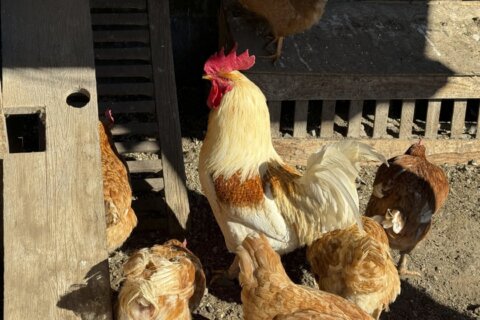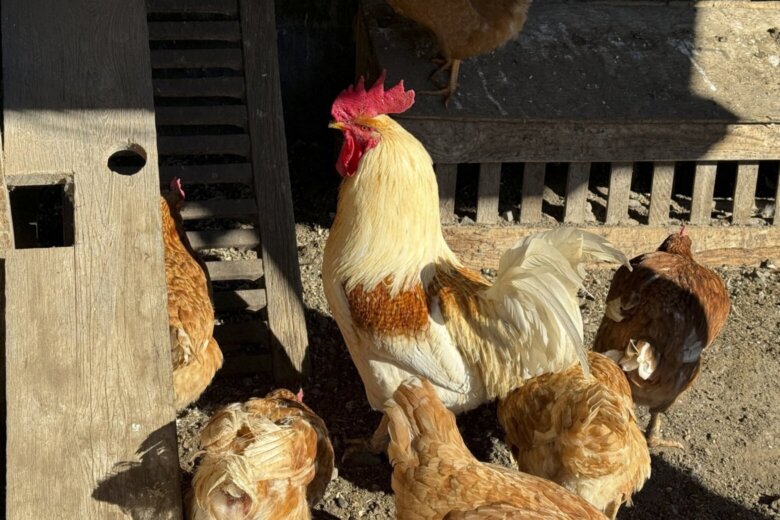
While springtime brings the natural beauty of cherry blossoms to the District, it also provides a natural challenge for the growing number of people in and around the nation’s capital who keep chickens in their backyard.
“About 10.6 million U.S. households actually own backyard chickens, and we saw that number increase during the COVID pandemic,” said Dr. Katy Burden, a veterinary medical officer with the U.S. Department of Agriculture and laboratory coordinator for the National Poultry Improvement Plan.
Owning chickens in rural and suburban communities has been common, “but we’re starting to see that number increase in urban areas as well.”
As for why someone might want to keep chickens in their backyard?
“They have chickens in their backyards because they want to have fresh eggs,” Burden said. “And also, psychological studies found out that birds actually make people happier, so a lot of people just own birds as pets and they want to have them around.”
However, spring poses potential risks, as the U.S. is experiencing the largest Highly Pathogenic Avian Influenza (HPAI) outbreak in history. Avian influenza diseases can quickly and easily spread from wild birds to backyard flocks, pet birds and commercial poultry, according to the USDA.
“We’ve got a lot of migration happening with those birds that are returning home from the winter,” Burden said. Citing real time analysis, she added: “You actually had about 2 million birds migrate over the state of Maryland last night alone.”
The problem is when infected birds come in contact with backyard flocks, either while migrating or stopping to eat along the way.
“Dropping poop onto your premises, that can infect your birds as well,” said Burden. Also, “If you have open feed containers that your chickens are able to access, then you also attract those wild birds onto your property, as well.”
Burden said bird owners should implement biosecurity.
“You’re trying to do the best that you can to keep any sort of bacteria, viruses, parasites, funguses off of your property,” she said.
How to recognize whether a backyard bird might have avian influenza?
“You’re gonna see a decrease in their feed and water consumption, a decrease in their egg production, if they’re producing eggs for you, and you’ll sometimes see neurological signs — so your bird might actually be holding its head in a strange way,” Burden said.
“The best thing to do is to call the USDA toll free number at 1-866-536-7593,” for guidance on how to proceed. USDA’s website provides information on its Defend the Flock Program.
Get breaking news and daily headlines delivered to your email inbox by signing up here.
© 2024 WTOP. All Rights Reserved. This website is not intended for users located within the European Economic Area.








